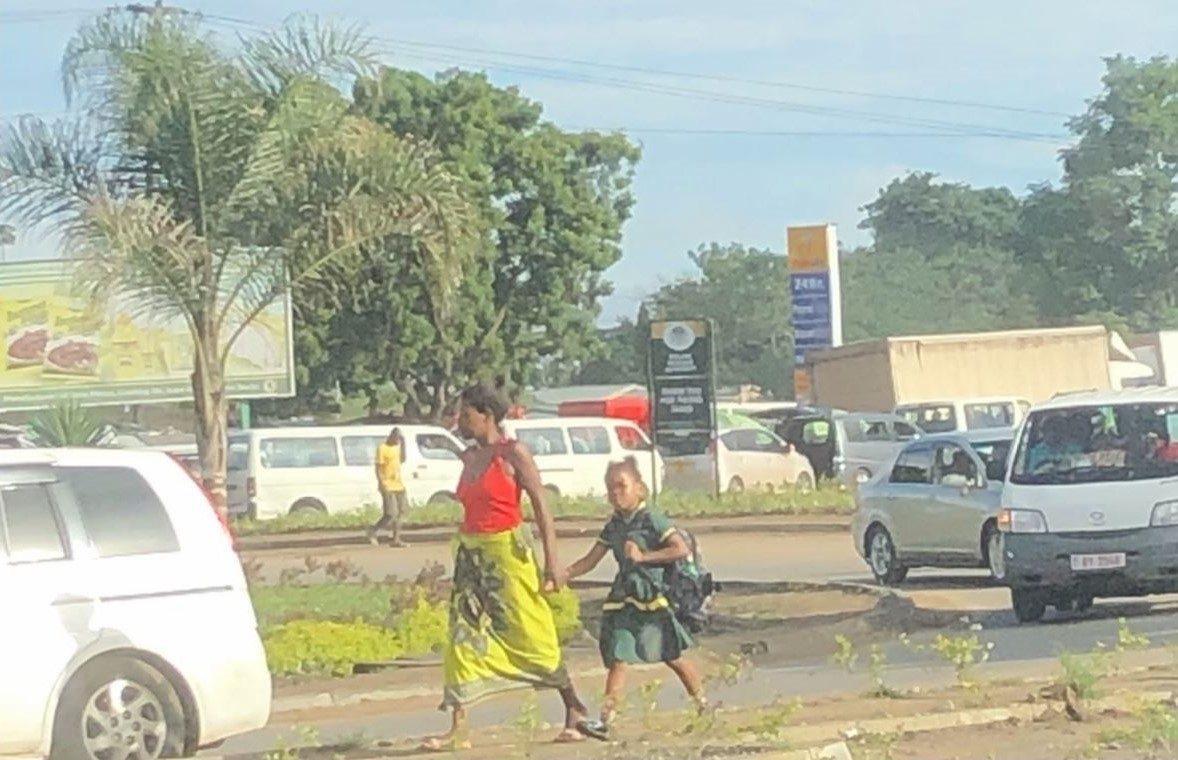
Risk Elimination on Walks to School (REmWalkS)
Every year, an estimated 350,000 children and adolescents are killed in road traffic crashes (RTCs) or by the effects of urban outdoor air pollution, to which road traffic is a significant contributor. RTCs are the leading cause of death for children and adolescents worldwide but those in resource-limited settings are disproportionately affected with 93% of child road traffic deaths occurring in low- and middle-income countries.
In addition to the deaths, injuries and disabilities caused by road collisions, children in urban areas often also sustain insidious damage to their developing lungs and brains by breathing traffic-related air pollutants (TRAP). TRAP exposure can result in growth stunting, delays in cognitive development and chronic respiratory problems. Due to the many overlapping causal factors linking road safety and personal air pollution exposure, there are significant opportunities for complementary mitigation measures to drive improvements in child health, safety, and wellbeing.
In 2016, the road traffic death rate in Malawi was 31 per 100,000 population; among the highest in the world. Meanwhile, levels of fine particulate matter (PM2.5) are over double the WHO threshold of 10 µg/m3. Many children in Malawi walk to school on roads that are in poor condition and dangerous. Some schools are even located along major highways which increases both exposure to high-speed traffic and high levels of TRAP.
The UKRI Public Health Intervention Development (PHIND) grant scheme funds this ‘Risk Elimination on Walks to School’ (REmWalkS) project which is led by Margie Peden from Imperial College London (ICL)/TGI-UK with co-investigators at Kamuzu University of Health Sciences. It builds on work being conducted by colleagues at the University of London and ICL looking at air pollution exposure among children with asthma in seven African countries (ACACIA) and Children's Air Pollution Profiles in Africa (CAPPA).
REmWalkS seeks to develop information from these studies in one country (Malawi) to better understand the relationship between safer and cleaner walks to school for children aged 12-16 years. The overall aim is to develop a package of interventions that will reduce both the risk of injury and air quality exposure to children walking to schools in Blantyre, Malawi’s second largest city.
The research team are using mixed methods guided by a community-based participatory approach and the 6SQuID framework to answer the following research questions:
- How do children get to school?
- How are children injured on their way to school?
- What are their perceptions of safety and air quality?
- What road safety and air pollution risks do children encounter on their journey to school?
- What interventions should be prioritised?
- How acceptable would interventions be to stakeholders & what is the change process?
Children are being engaged in the study through mobility and observational surveys and PhotoVoice. Following an analysis of the data, a group of local and international road safety experts will be brought together to develop recommended interventions, the acceptability of which will then be assessed through discussions with parents and teachers. A process map of how changes might be undertaken in future will result.
For more information please contact Margie Peden or Prasanthi Attwood
The following video, produced by Bosco Exson Chinkonda, provides an introduction to the project:





